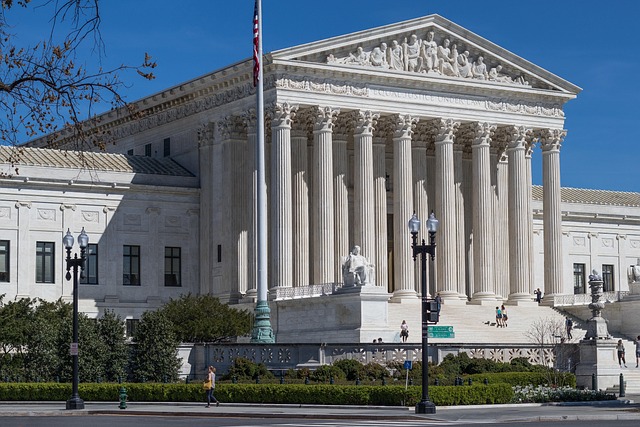
More Thoughts on NCN Litigation and Nationwide Injunctions
05.05.2025 | Linda J. Rosenthal, JD

“Keep your eye on the ball” is apt advice for “the boys of summer” as they begin the next several weeks under a blistering summer sun and the new MLB rules: “Pitch clock, end of shift and more….”
The phrase “originates from the game of baseball to imply that players need to watch where the ball is at all times….” But it’s commonly “… used in business and life outside of the game of baseball as well, to emphasize simply that it’s important to be attentive and careful.”
For America’s charities, it’s wise counsel, too. “Nonprofit law” is much more than the Internal Revenue Code and the rules of federal tax exemption. New developments are being lobbed from all directions, including from agencies and officials normally way out of the usual field of vision.
That’s a favorite theme of ours here at the FPLG blog. And to drive home the point from time to time, we select and showcase a representative sample of new legal requirements and issues around the nation that affect nonprofits, exclusively or otherwise.
In this post, we look at: new FCC prohibitions on robocalling; a significant change by the National Labor Relations Board on union-organizing rules; and a confusing and inconsistent crop of local minimum-wage hikes around California.
By July 20, 2023, nonprofit organizations making robocalls – that is, using an artificial or prerecorded voice – to residential landlines will have to revise their practices and procedures.
The Federal Communications Commission recently published final regulations implementing the 2019 Telephone Robocall Abuse Criminal Enforcement and Deterrence Act (the “TRACED” Act). See Federal Register (June 20, 2023).
Under prior law, nonprofit and political organizations “did not need prior consent to place a non-commercial, informational (i.e., not telemarketing) robocall to a residential landline telephone number.”
Under the new final regulations, “robocallers who do not have prior consent are limited to three calls to a landline phone number in any thirty-day period.” By contrast, robocalls to wireless phones were, and continue to be, prohibited “unless consent has been obtained before the first robocall.” Consent was not required, and continues to be allowed, in the case of live callers.
On and after July 20th, “to place more than three calls, the robocaller will need to obtain the call recipient’s oral or written express consent, either in one of the three permissible robocalls or by using a live caller.” There are additional requirements and conditions. There must be an automated opt-out option and procedure, and a phone number provided must connect to that opt-out option. In addition, the organization must adopt a written policy and have adequate training.
“The FCC believes these new requirements will not unduly burden non-commercial callers and notes that most of these requirements have applied to commercial telemarketers for years.” See Regulating Robocalls: New FCC Rules Take Effect July 20 (June 16, 2023) Michael Bayes, Esq., et al, Holtman Vogel, and New FCC Robocall Rules for Nonprofit and Political Calls Begin July 20, 2023 (June 5, 2023) Madeline Conover, Esq., et al., Venable LLP.
Two weeks ago, the National Labor Relations Board issued a significant ruling that is the latest move to overturn policies and practices put into place by the Trump Administration’s NLRB. In The Atlanta Opera, Inc., 372 N.L.R.B. No. 95 (June 13, 2023), the Biden Administration’s NLRB reinstated the “prior, employee-friendly standard for determining whether workers are “employee” or “independent contractors” under the National Labor Relations Act.” See NLRB Imposes Stricter Independent Contractor Test on Employers (June 15, 2023) Michael A. Pavlick, Esq. and Taylor J. Arluck, Esq., US Labor, Employment, and Workplace Safety Alert, K&L Gates.
In the now-overruled SuperShuttle DFW, Inc., 367 N.L.R.B. No. 75 (2019), the prior Administration’s officials “held that a worker’s ‘entrepreneurial opportunity’ should be afforded special weight relative to long-standing common-law factors and that the more opportunity workers possess, the more likely they are independent contractors.” The current NLRB, in Atlanta Opera, ruled that such a factor was not relevant to the traditional test, and that position was “irreconcilable with Board and US Supreme Court precedent.”
Notably, the NLRB “rejected the other other worker classification tests offered by amici and commenting parties, including the “even more employee-friendly ‘ABC test’” (which is a different test adopted by the California courts and legislature).
In any event, this ruling “… is important to both union and nonunion employees because independent contractors are excluded from the NLRA’s protections—which include the statutory rights to form a union and strike, among others—under Section 2(3) of the NLRA.”
See as well: Labor Board Returns to Stricter Independent Contractor Standard: 4 Things Employers Need to Know (June 14, 2023) Insights, Fisher Phillips LLP [“A highly anticipated decision by the National Labor Relations Board (NLRB) makes it significantly harder for companies to classify their workers as independent contractors…., (reverting) to a broader independent contractor standard that was established during the Obama administration in 2014 — which means more workers will again be considered ‘employees’ under federal labor law.”]
Minimum-wage laws apply to employers across the board, including nonprofits.
In recent years, many states have been making much-needed upward adjustments to their statutory minimum-wage rates. For instance, on January 1, 2023, the statewide minimum wage for California was raised to $15.50 for all employers.
But, “[d]epending on where their employees are located within the state, California employers may be facing another minimum wage increase on July 1st.” See California Local Minimum Wages Increasing on July 1 (May 30, 2023) Erika M. Barbara, Esq., California Workplace Law Blog, Jackson Lewis.
This is not unusual; it’s been happening regularly. Nevertheless, it can be quite confusing. “Several localities in California have minimum wage ordinances that require employers to pay employees working in those localities a minimum wage that is higher than the state minimum wage. While many local minimum wages increase every January 1st, as does the state minimum wage, a number increase every July 1st.”
And there may be significant fluctuations, even across jurisdictions in regions. For example, in the Los Angeles region, the City of Los Angeles rate jumped from $16.04 to $16.78; compare that with the change for the County of Los Angeles unincorporated areas, increasing almost a full dollar from $15.96 to $16.90.
Malibu was identical to the County of L.A., but West Hollywood’s new rate is an outlier. The pre-July 1st amount varied based on size of employer ($17.00 to $17.50) with an exception for the hotel sector ($18.35). Beginning July 1st, though, workers in West Hollywood will enjoy a uniform hourly minimum-wage rate of $19.08.
Of course, these are just a few examples. There are more instances of activity including some from way out in left field that have unexpectedly clobbered one or more of the nation’s nonprofits.
Scary case in point: On May 31, 2023, the Atlanta Police Department deployed a SWAT team to arrest three volunteer members of the board of directors of local charity, Network for Strong Communities, Inc.
“These three people weren’t fugitives from justice or drug kingpins….” explained Beth Gazely, Indiana University Professor of Public and Environmental Affairs. See Arrests of 3 members of an Atlanta charity’s board in a SWAT-team raid is highly unusual and could be unconstitutional (June 8, 2023), the conversation.com; see also 3 Atlanta activists are arrested after their fund bailed out protesters of ‘Cop City’ (June 1, 2023) NPR via The Associated Press.
Instead, the local authorities, later joined by Georgia state officials, objected to the 501(c)(3)’s stated (and IRS-approved) activity of bailing out local activists who had been detained. The Georgia Bureau of Investigation “then charged these trustees… with charity fraud and money laundering” and were threatening possible charges under Georgia’s Racketeer Influenced and Corrupt Organizations (RICO) Act, a very expansive state version of federal RICO laws.”
– Linda J. Rosenthal, J.D., FPLG Information & Research Director
